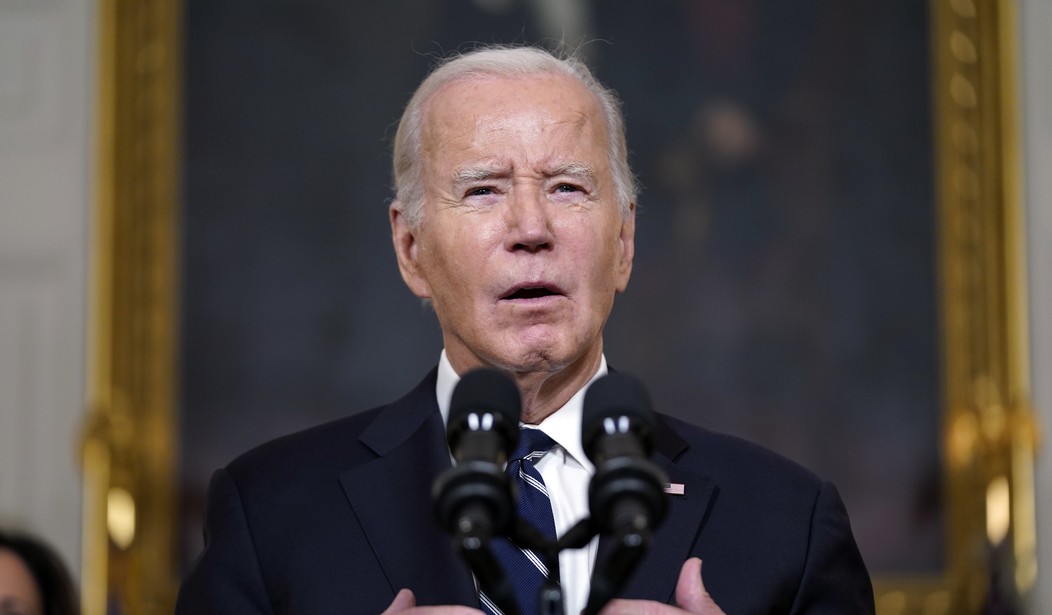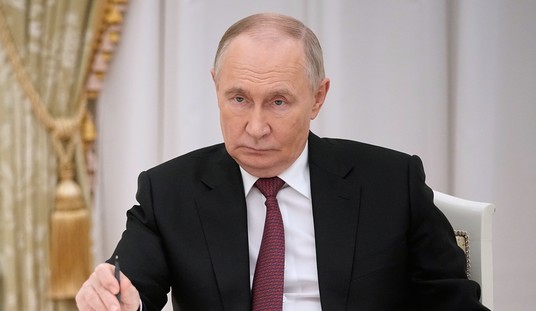The inevitable blame game over the Israel-Hamas war began almost as soon as the first shots were fired at the Israeli music festival where the latest violence started. To any honest observer, the place to assign blame in all of this should rest squarely on the shoulders of Hamas. They broke the uneasy peace in that region by executing a horrifying terror attack on innocent civilians. Others, including some in our own Congress, have attempted to claim that the blame should actually be applied to Israel (apparently for simply existing). But now some leaders in the Arab world are coming out and openly accusing Joe Biden of causing the current problems, reasoning that he has “failed to put in the work” that other presidents have to move the peace process forward. This seems ill-considered at best. The Associated Press explains how some might agree with that theory.
From its first months in office, the Biden administration made a distinctive decision on its Middle East policy: It would deprioritize a half-century of high-profile efforts by past U.S. presidents, particularly Democratic ones, to broker a broad and lasting peace deal between Israel and the Palestinians.
Since Richard Nixon, successive U.S. administrations have tried their hands at Camp David summits, shuttle diplomacy and other big-picture tries at coaxing Israeli and Palestinian leaders into talks to settle the disputes that underlie 75 years of Middle East tensions. More than other recent presidents, Joe Biden notably has not.
Instead, administration officials early on sketched out what they called Biden’s policy of quiet diplomacy. They advocated for more modest improvements in Palestinian freedoms and living conditions under Israeli Prime Minister Benjamin Netanyahu’s hardline government, which has encouraged settlement in the Israeli-occupied West Bank and which includes coalition partners that oppose the U.S.-backed two-state solution.
Who has been pointing the finger at Biden? Thus far, the President of Egypt has suggested as much, being joined by leaders of Jordan and the Palestinian Authority. Saudi Arabia has also been critical, pointing out that they have been warning about a “potential explosion” in the region for years.
As any regular reader already knows, I’m always more than willing to metaphorically hoist Joe Biden up with his own petard over his various shortcomings and bad policy decisions. But in this case, the argument that his lack of attention to the situation between Israel and Palestine was a primary driver of this crisis simply doesn’t hold up. That region was a mess long before Biden reached office and few see any prospect of the situation improving significantly after he leaves.
Could Biden have done more during his first few years in office? I suppose so. He could have tried to get the leaders to sit down for a summit at Camp David as many of his predecessors have done. But in the end, what did that really accomplish? It’s true that we would rather see the two sides talking than shooting, but none of the talking in the past resulted in any permanent, measurable improvements.
If we want to find a path to blaming Biden for this, there is definitely an argument to be made that he has projected weakness on the world stage. This has led our adversaries to act more boldly, assuming that a forceful response wouldn’t be forthcoming from the White House under this administration. Perhaps that factored in to the considerations of Iran and Hamas while plotting this attack. We may never know.
The underlying reality is that Israel’s Arab neighbors largely do not support the Jewish state and have opposed it from the beginning. The first Arab-Israeli war broke out before the ink on the documents formally creating the nation had dried. Being either at war or on the verge of war has been a “normal” state of affairs for Israel for most of its existence. Joe Biden couldn’t have magically fixed that even if he were the most brilliant and skillful diplomat to ever sit at the Resolute desk. (Spoiler alert: He’s not.) But we also can’t simply give up on our ally Israel. So it would appear that the fighting will continue.








Join the conversation as a VIP Member